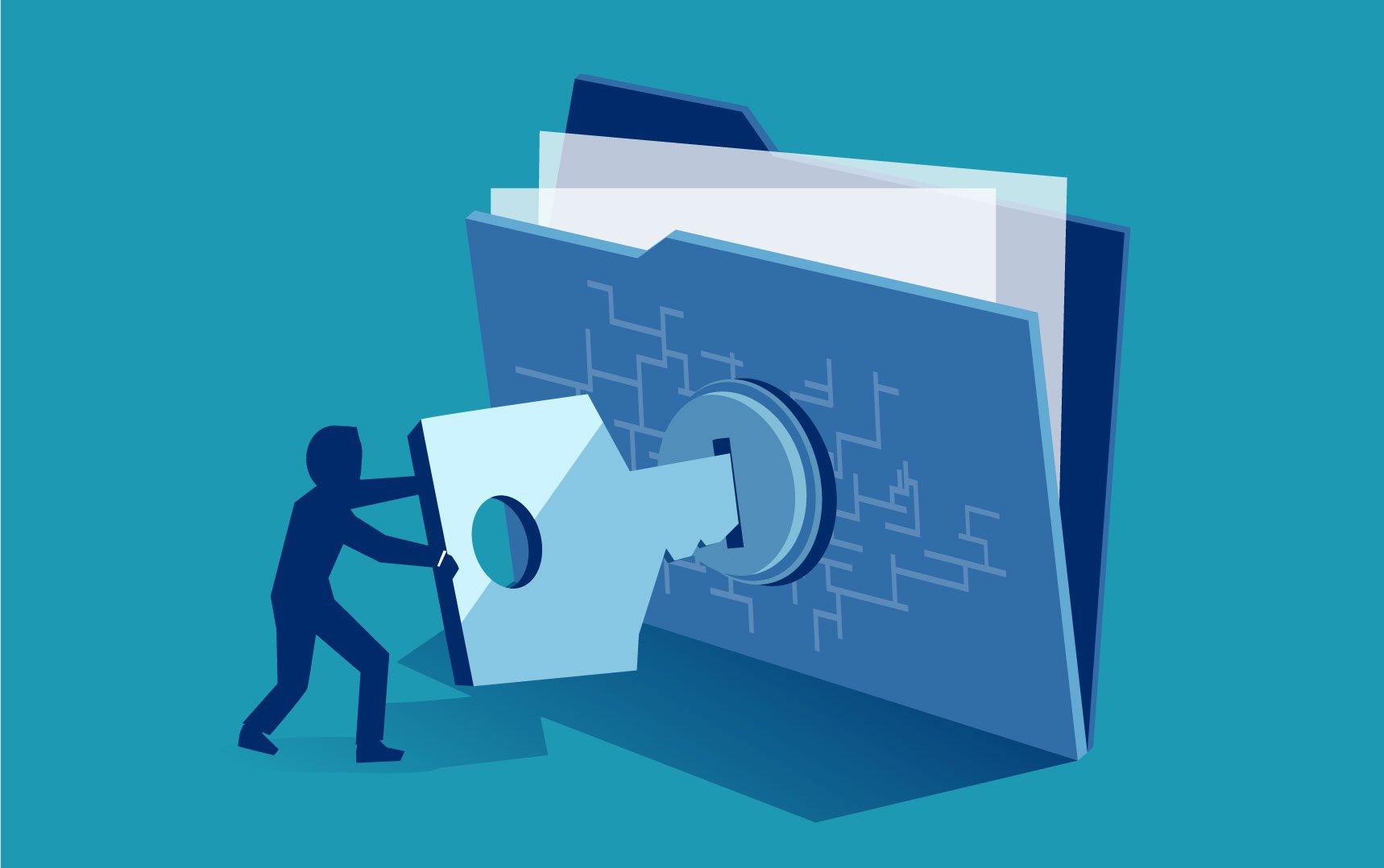According to the U.S National Cyber Security Alliance, 60% of small companies are unable to sustain their business past six months after a cyber attack. The average price to clean up after a hack is $690,000 for small businesses and over $1 million for middle-market companies, according to the Ponemon Institute.
Trust can be a fragile bridge for businesses entrusted with carrying sensitive data and personal information. The smallest crack in the infrastructure that keeps data secure can result in astronomical fines, loss of business, and irreversible damage to your company’s reputation.
One of the keys to keeping that bridge of trust intact begins with a rock-solid process for encrypting private data. Encryption can be defined as being the process through which data is encoded in order to remain hidden from or inaccessible to unauthorized users. When it comes to law firms looking to collect, send, and retain the medical records of clients, ensuring your data is encrypted is a simple process that can prevent devastating consequences.
The rise of cyber theft targeting law firms, insurance companies, and medical providers is a result of the increased value the black market has placed on personal health information. The value of a person’s social security number starts at $2, and for credit card information that amount increases to $10. But, their medical health record could be worth hundreds or even thousands of dollars according to cybersecurity firm Radware. A person can cancel credit cards and change social security numbers, but their health record is immutable, said Robert Lord, the chief executive of health care cybersecurity firm Protenus.
“They can be used for extremely complex types of fraud,” Lord said. “Then, of course, there is medical blackmail. If you’re a public figure and you have plastic surgery or you’re HIV positive or have a cancer diagnosis . . . you can imagine what that could mean if your records became public.”
Start-up and smaller law firms have a higher risk for attack because many have fewer resources, a lack of understanding of the security landscape, and tend to invest more in promoting the business and building it at the expense of the business’ online security. Small and mid-sized businesses are hit by 62% of all cyber-attacks, about 4,000 per day, according to IBM.
When you encrypt medical records and other digital records, the data they contain is changed to a code that can only be deciphered with a decryption key. Once the data is encrypted, it is unreadable to anyone who doesn’t have the decryption key. Even if your computer is stolen your data is completely safe if you’re using the encryption process to protect folder contents that have sensitive information.
All of the sensitive data that flows through MRC is encrypted and secure through WiseFiles®, the industry’s most innovative and effective record retrieval and document management system. To learn more about how MRC can securely collect, deliver, and store your medical records and other documents, contact us today.


